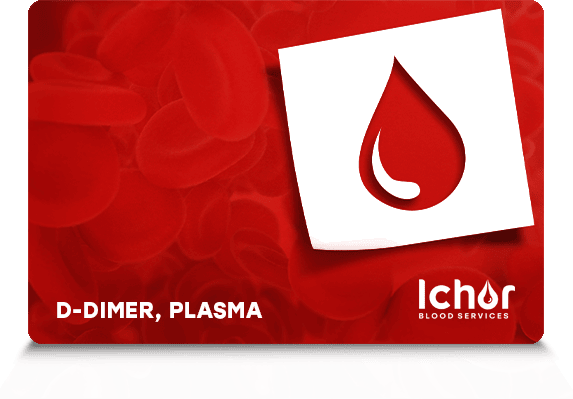
What Is It?
DDITT, also known as D-Dimer, P is a simple blood test that can detect or monitor blood-clotting problems. D-dimer is a type of protein fragment the body produces to break down a blood clot. It is normally undetectable in the blood but is produced when the body is attempting to break down a blood clot. The presence of d-dimer indicates that systems of the body are activated in response to a coagulation (clotting) event. This test cannot indicate what has caused the clot, or where it is located within the body.
Who Is It For?
D-dimer testing is a useful tool when used with other diagnostic processes to detect thrombotic (blood clot producing) diseases and conditions. Your doctor may recommend d-dimer testing if they suspect:
- Deep vein thrombosis (DVT)
- Pulmonary embolism (PE)
- Disseminated intravascular coagulation (DIC)
- Increased d-dimer levels may also be associated with pregnancy, liver disease, malignancy, and inflammation.
Why Is It Important?
Because d-dimer levels are so useful in identifying increased risks due to a coagulation event, this test is useful in determining or ruling out deep vein thrombosis, pulmonary embolism, and other clotting conditions. Elevated levels of d-dimer can inform further testing, rule out clotting events, or aid in the monitoring of treatment effectiveness. This test is an excellent way to identify any potential red flags and facilitate a conversation with your doctor.
